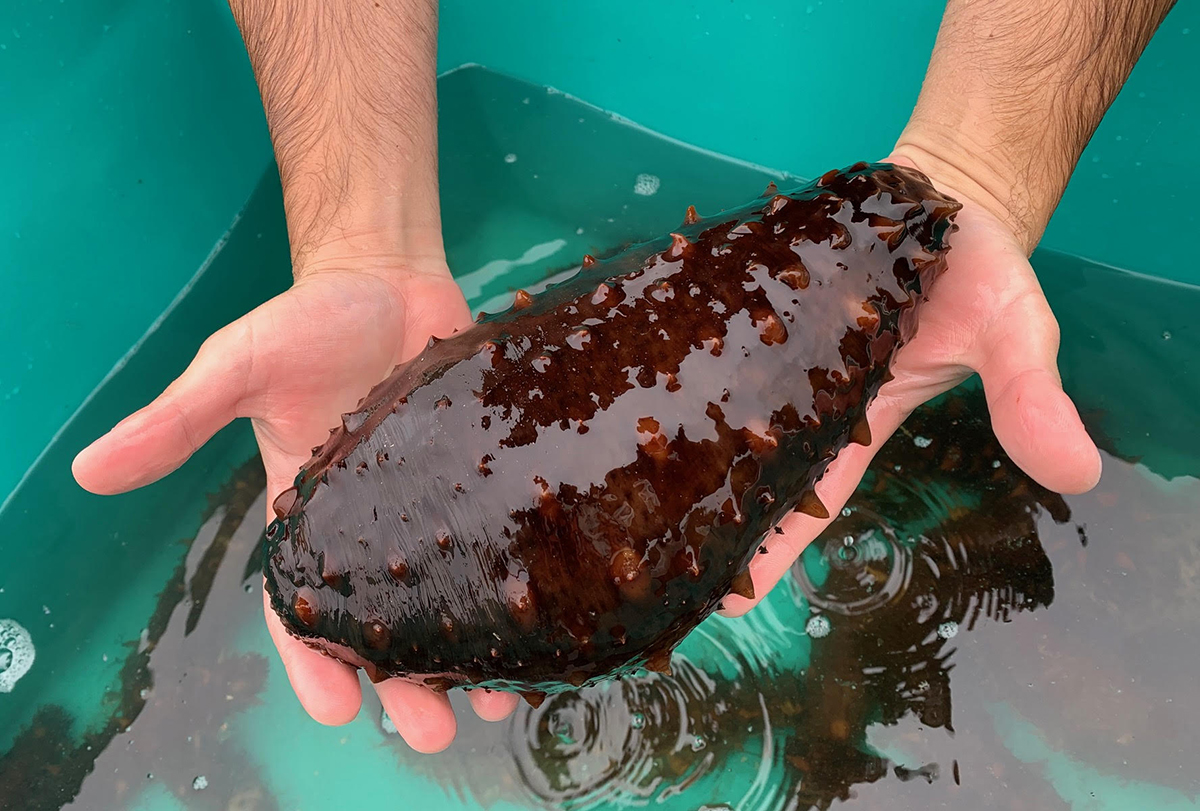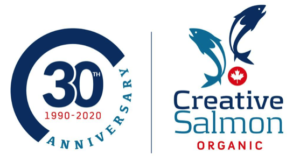
One of the sea cucumbers introduced to Creative’s test sites July 2021
While the AutoBoss is making waves on how Creative cleans its nets, Mother Nature’s own sea-floor vacuum cleaners might be slithering in on the robot’s territory.
As part of an innovative pilot project, Creative has partnered with Canada’s Department of Fisheries and Oceans (DFO) to explore the impacts of co-culturing giant red sea cucumbers along side farm-raised fish.
“Sea cucumbers ultimately act like little garbage trucks or recycling facilities to help hoover up and clean up sediments and biofouled material,” says Dr. Emaline Montgomery, a marine biologist and research scientist with DFO.
Emaline, whose research focuses on the co-cultivation of species in aquaculture, says the bottom-feeding prowess of sea cucumbers could improve the sustainability of B.C.’s aquaculture industry.
To test their cleaning power, sea cucumbers – which grow up to 60-centimetres long – were placed in pens at two Creative sites in July 2021.
Barb Cannon, Creative’s Biology Manager, was on hand to support the sea cucumbers’ transition. “They looked healthy and happy,” she says. “According to Mulder Marine, our dive contractors, they’re already climbing about their new homes, which is a great sign.”
Between the two sites there are eight pens to test a variety of conditions. Two pens contain only fish, two contain only sea cucumbers, two have both fish and sea cucumbers, and two have neither fish nor sea cucumbers.
Over the next few months, DFO researchers will keep a close eye on all eight pens with the help of Creative’s biology team and Mulder Marine who will be collecting video, photos, and samples.
While the project is focused on net cleaning and coculturing in the context of sustainability, it’s also exploring a potential new revenue stream by measuring the sea cucumbers’ commercial viability including growth rate and market quality.
“This could be a real win-win for Creative and our industry as a whole,” says Cannon. “Co-culturing could mean cleaner, more sustainable operations, and the opportunity to tap into the high-value international sea-cucumber market.”
A report on the pilot findings is expected to be available in 2022.

